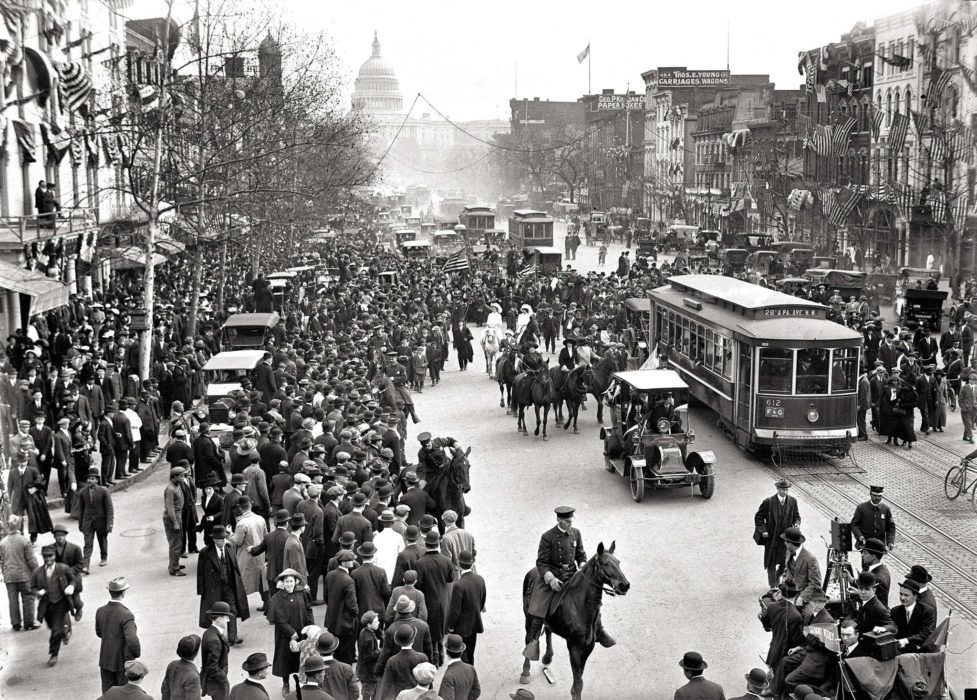THE AMERICAN PRESS HAS been kind to ‘Abdu’l-Bahá. Dozens of articles in newspapers across the country have reported his progressive views on women’s rights, international arbitration, his concept of a spiritual civilization, and his surprising position on the race issue.
But for some it’s just too good to be true.
On April 12, ‘Abdu’l-Bahá’s second day in America, a generous but skeptical op-ed columnist wrote as much in the Oakland Enquirer. “It is admitted that Abdul Baha is a man of deep learning and thought,” he agreed, “but he will be a wonderfully old man if he lives to see the adoption of one tongue, one religion, one line of education, one code of morals, one method of work and one government.”
“We will be glad to see Abdul, but we feel that he is due to return to his Persian [sic] home a deeply disappointed advocate of advanced social, economic, educational, political and religious ideas.”
Two days later, the fiery Reverend Dr. Percy Stickney Grant seated ‘Abdu’l-Bahá in the chair reserved for the Bishop at the Church of the Ascension, on Fifth Avenue and 10th Street in Manhattan. It caused a sensation in church circles, because the Nineteenth Canon of the Episcopal Church prohibited any unbaptized person from sitting behind the altar rail. The next day the Bishop came to see ‘Abdu’l-Bahá at the Hotel Ansonia to apologize for the kerfuffle.
But on April 27, the Bishop of Maryland, John Gardner Murray, banned ‘Abdu’l-Bahá from Episcopalian churches throughout his state. “Abdul Baha does not profess to be a Christian,” the official Episcopal organ, The Churchman, printed. “What righ[t], then, has he to preach in a Christian church? Still further, what right has the rector of one of our parishes to commit his people to the religious instruction of a teacher who does not believe in the Christian religion?” That was an inaccurate description of ‘Abdu’l-Bahá’s position on Christianity, but a useful one.

Other churches in Washington also objected to ‘Abdu’l-Bahá. The Washington Post reported on April 29 that Methodists were praying for him — that he would see the light and go home. The Rev. Dr. James Montgomery told his congregation at the Metropolitan Memorial M. E. Church that he wished that “some of those who have listened to Abdul’s lectures would take the role of teacher themselves, and convert to Christ this remarkable priest of the ‘universal cult.’ ” While ‘Abdu’l-Bahá was “doubtless sincere,” he said, he hoped that becoming a Christian would enable him to “return to his Eastern home a greater man.”
Just four days ago, Dr. Ernest C. Smith reminded his congregation at St. Thomas’s Church, near Dupont Circle, that “By their fruits ye shall know them.” Nothing good could possibly come out of Persia, he believed, but the bigger problem was that ‘Abdu’l-Bahá raised other religions to the same status as the one taught by Jesus Christ, “whom we dare not compare.” “Because of these things,” Smith said, “the only Godspeed we can bid him is a Godspeed back to his own country.”
In spite of these reports, ‘Abdu’l-Bahá doesn’t seem at all perturbed by the negative press. He told one friend that he doesn’t worry about criticism. “The denunciation by the leaders of religion,” he said, “is a proof of the greatness and influence of the Cause because no one pays any attention to something insignificant.”







